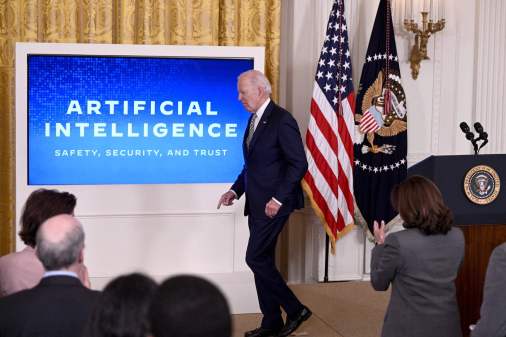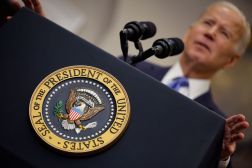USDS = taxpayer value, former White House deputy CTO says

The White House tech-surge team’s mission of developing more effective and efficient digital services for Americans fits quite nicely with the Trump administration’s agenda to decrease the burden on taxpayers, a former White House deputy CTO said Monday.
The U.S. Digital Service doesn’t explicitly tout “taxpayer value” as one of its core focuses, but it’s inherently tangential to its mission, said Nick Sinai, a former deputy CTO in the Obama administration when the White House launched the USDS. Though the program isn’t a codified component of the Office of Management and Budget, which oversees its operation, the Trump White House has signaled its interest in keeping the team around in some capacity.
You can “point to a bunch of projects that have saved many tens of millions of dollars and have taken something that wasn’t working and replaced it at a fraction of the cost with either something that they built or something that they bought from the tech industry,” said Sinai, now a venture partner with Insight Ventures and adjunct faculty at the Harvard Kennedy School.
“I really do hope the new administration seizes this,” he said at the 2017 State of the Net Conference in Washington, D.C. “And of course, they’re going to focus on taxpayer value, and that’s something we were focused on as well — we just didn’t use that term. A modern, efficient, effective government that delivers on its promise using the best practices of the tech sector — I mean how could you be against that?”
Monday’s State of the Net discussion came as the future of the U.S. Digital Service hasn’t been explicitly set in stone by the new administration. But hints of support from the new White House for the tech fix-it team have trickled out, including an encouraging tweet from recently named Chief Digital Officer Gerrit Lansing:
FYI: @USDS is here to stay in the new administration. Period.
— Gerrit Lansing (@lansing) January 23, 2017
It also appears White House senior adviser Jared Kushner, President Trump’s son-in-law, reached out to former U.S. CTO Todd Park to express the new administration’s support for USDS, OSTP and the General Services Administration’s Technology Transformation Service, which houses 18F, Bloomberg reported. Park was Sinai’s boss in the Office of Science and Technology Policy for a bit and served as the point man between the White House and Silicon Valley during the latter part of the Obama administration.
“I’m hopeful this new administration will see the value of these various efforts, because at the end of the day they are providing a lot of taxpayer value,” Sinai said.
The time to take advantage of the progress USDS and the former administration made in federal IT modernization is now, while the new White House and Congress are impassioned to make change, agreed Matt Lira, a senior adviser to House Majority Leader Kevin McCarthy, R-Calif, on the panel with Sinai.
“This is a unique opportunity, not only because of the party alignment between the two branches, but also whenever you have a new administration and kind of a re-energized Congress, the ability to make big, substantive changes, to pass big bills, to stand up big programs and projects” is exceptional, Lira said.
And he’s optimistic his fellow Republicans will seize the progress made in the last eight years.
“The administration has got the foundation built, I think, for a modern government,” Lira said. “The concrete has been laid, and the steel bars have been put in place, and I think they have the opportunity to build a modern government on that foundation.”
But perhaps most crucial to the calculus of what will continue to make programs like USDS successful, said Sinai, are the career personnel embedded in agencies who “have the scars on their back.”
The career civil servants, he said, are “heroes…who are just tremendous innovators, who are doing most of the work, frankly. It really is the pairing of the folks deep inside the agencies, with executive support.”
They “understand the program, understand the procurement, understand what’s been tried from the private sector,” Sinai said. “That’s when you see the magic.”






